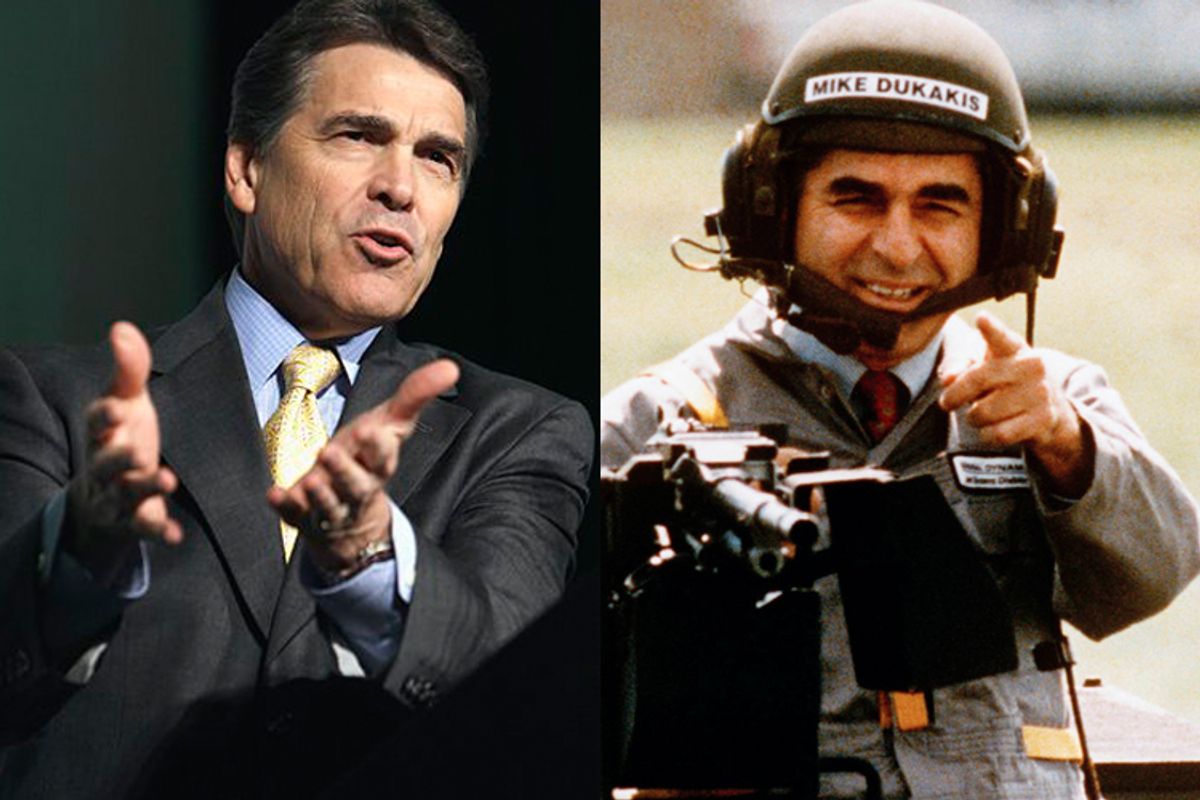The news out of Texas is that the state's unemployment rate has ticked up to 8.5 percent, the highest it's been in 24 years.
Is this proof that the "Texas Miracle" that's supposed to be his most compelling selling point is a mirage? Not really. Texas' jobless rate remains below the national average and the state is still adding private sector jobs (the latest job losses come from a shrinking public sector). While there's good reason to doubt that Perry himself has had much to do with it, it's hard to deny Texas has enjoyed unusually strong growth in these hard times.
But if Perry ends up as the Republican nominee, a fine print analysis of his Texas record will probably not be the basis for how most voters judge whether his miracle is real. The higher the unemployment rate climbs, the easier it will be for Democrats to throw cold water on his claims.
In that sense, it's fitting that Texas' jobless rate is now on par with where it was in 1987 -- a year when another big state governor set out to run for president while touting the economic "miracle" his policies had supposedly produced.
That was Michael Dukakis, whose 1988 Democratic candidacy was rooted in a belief that the swing voters who'd abandoned the party in the previous two presidential elections would see in Dukakis' "Massachusetts Miracle" a reason to trust Democrats on the economy again.
On paper, Dukakis had a strong case to make. The state's unemployment rate was at just three percent in 1987, the lowest of any industrial state and down from 12 percent when he'd been elected governor for the first time in 1975. The overall tax burden was also among the lowest in the nation, another marked shift from the mid-'70s. Dukakis bragged of launching ambitious public/private initiatives to bring businesses to distressed areas and of an innovative employment training program that turned thousands of welfare recipients into tax-paying members of the workforce -- all of it paid for with new revenue from an aggressive crackdown on delinquent taxes, which had added more than $1 billion to the state's treasury in the mid-'80s. Full employment, "good jobs at good wages," and no new broad-based tax hikes: This was the Massachusetts Miracle.
Democrats bought in and nominated Dukakis. But like the one Perry now touts, his "miracle" was complicated and not solely, or even primarily, the result of his stewardship. This reality came back to haunt Dukakis during his general election race against George H.W. Bush. By the fall of 1988, there were signs of an economic slowdown in Massachusetts and across the Northeast. States found themselves facing lower-than-expected tax revenue and bigger-than-expected deficits. Massachusetts was among them. It gave Bush an opportunity to claim that Massachusetts "is approaching a fiscal fiasco that might best be described as a budgetary Three-Mile Island." As he campaigned across the country that fall, Dukakis was haunted by news from back home of ever-escalating deficit forecasts ($200 million? $400 million? $600 million?) and polls showing a growing number of residents turning on him. By the end, most Americans agreed with Bush's declaration that the miracle had been a mirage.
In a way, it's easy to feel sorry for Dukakis. The downturn and budget woes of the late '80s were mainly mainly the products of factors beyond his control. Then again, so was the Massachusetts Miracle.
So while it certainly makes sense for Perry to embrace the "Texas Miracle," the Dukakis example should serve as a cautionary tale for him: Live by the boast, die by the boast.



Shares